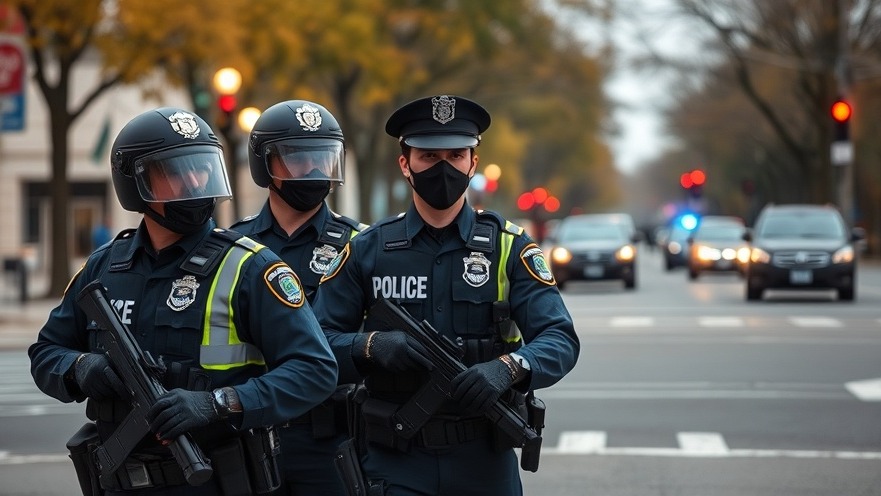
The Growing Divide Over DC Policing
The debate over policing in Washington D.C. has reached Congress, with both parties grappling for control over the city’s law enforcement strategies. Republican lawmakers are pushing for proposals that would extend federal authority over the streets of D.C. This shift comes amid heightened crime rates and ongoing discussions about public safety. With tensions rising and parties polarized on their approaches, this contentious issue could reshape the governance of the nation’s capital.
Understanding Federal vs. Local Authority
The crux of the battle lies in the tension between local governance and federal oversight. Many Democrats argue that policing should remain within D.C.'s jurisdiction, highlighting the importance of local input and accountability. Conversely, Republicans contend that the escalating crime rates necessitate a strong federal response. This divide not only reflects party lines but also deeper ideological beliefs about governance and accountability.
Impact of Crime Rates on Policy Decisions
As violence spikes in D.C., the argument for federal intervention has gained traction. Proponents cite statistics showing increased homicides and property crimes, arguing that federal resources are essential in combating these trends. Critics, however, warn that federal oversight could lead to more militarized policing, which they argue disproportionately impacts marginalized communities. This presents a complex dilemma: how to ensure safety while respecting the rights of citizens.
Historical Context of Policing in D.C.
To better understand the current situation, one must look back at the history of policing in D.C. The District has a unique status: it operates under federal oversight, and the local police department is often seen as an extension of federal authority. Historically, attempts to reform policing have met significant resistance, with many viewing federal involvement as a potential infringement on local autonomy. This is further complicated by the varying priorities and resources of different administrations.
What This Means for Washington Residents
For D.C. residents, the debate over policing is not merely political—it is deeply personal. Many people are feeling the direct impacts of crime or are concerned about potential overreach from federal authorities. This has led to a community-driven dialogue, where local voices and experiences are paramount. Residents are asking not only how to enhance safety but also how to address root causes of crime, such as poverty and lack of resources.
Predictions for Future Legislation
Looking ahead, lawmakers are likely to continue debating the balance of power between local and federal authorities. As reports of crime continue to dominate headlines, they may be compelled to act swiftly. However, the inherent risks of over-policing and community mistrust could function as significant barriers to comprehensive reform. Observers suggest that a blended approach—primarily emphasizing local jurisdiction while allowing for federal support—might emerge as a viable compromise.
Concluding Thoughts: The Path Forward
The escalating crime rates and the corresponding push for federal intervention in D.C. policing highlight significant divisions within American politics. As Congress navigates this turbulent landscape, the outcome will have lasting implications not only for Washington residents but for policing policies nationwide. Keeping the community engaged and informed is crucial as this issue unfolds.
For those interested in continuously following developments in this story, stay tuned to trusted news sources. Engaging with reliable journalism ensures that citizens are well-informed and equipped to participate in discussions about their governance.
 Add Element
Add Element  Add Row
Add Row 



Write A Comment